Declaration of the Ministry of Foreign Affairs of Cuba
CubaNews translation by Walter Lippmann.
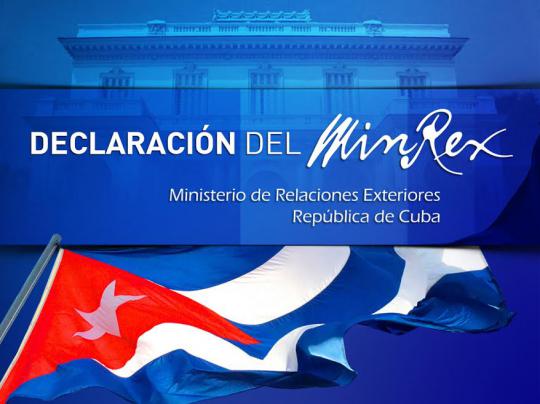

We have witnessed, once again, another infamous and immoral decision of the discredited OAS, against the Bolivarian Revolution, which reissues the embarrassing pages written against the Cuban Revolution in the sixties of last century.
The convocation of a Meeting of Consultations of Ministers of Foreign Affairs to continue to harass the Venezuelan government constitutes another action coherent with the traditional role of that organization as an instrument of imperialist domination in the hemisphere; In order to break the sovereignty, independence and dignity of Our America.
The OAS has always remained with its backs to the peoples of America, with a history of almost 70 years of subordination to oligarchic and imperialist interests. It has been absent when our region has been the victim of political, economic and military intervention and aggression, or serious violations of democracy and human rights.
It is time to acknowledge that the OAS is incompatible with the most pressing needs of the peoples of Latin America and the Caribbean. He is unable to re + present his values and interests. It imposed a false democratic creed, responsible for the deaths of hundreds of thousands of Latin Americans and Caribbeans and the poverty and exclusion of millions. The OAS assaults and imposes, and does not reconcile or dialogue; Disregards the equality and self-determination of States. It conspires and subverts genuine and legitimately constituted governments with proven popular support. It deserves the most profound repudiation.
Venezuela has adopted the dignified decision to withdraw from the OAS, which we firmly support, having bravely faced the harassment, interference and ignominy of the one that has been the object of this institution and its feverish Secretary General. For the sake of the defense of the collective interests of the region, both Chávez in his time, as now President Maduro, faced their betrayals with dignity and courage. But the OAS never set out to accept a popular government, much less help Venezuela, as some preach. On the contrary, it was increasingly aligned with the aims of overthrowing the Bolivarian Revolution.
The aggressions against Venezuela and the contemptible conduct of the OAS against it confirm that wherever there is a government that does not suit the interests of imperial power circles and their allies, it will be attacked. The new methods of attrition, more subtle and masked, without giving up violence, to break the peace and internal order, do not hide the old strategy of demonstrating the unfeasibility of progressives, the left and their struggles for economic development and Social development of our region.
Cuba ratifies its firm commitment to accompany Venezuela and the dignified, courageous and constructive position of President Nicolas Maduro at the head of the Bolivarian Revolution. We express our support and solidarity to the Venezuelan people and government in this new chapter of resistance and dignity, convinced of how much we have left to struggle to achieve unity and maintain the foundations of the Latin American and Caribbean Proclamation as Zone of Peace , Signed in 2014.
Havana, April 27, 2017.

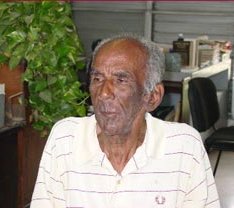



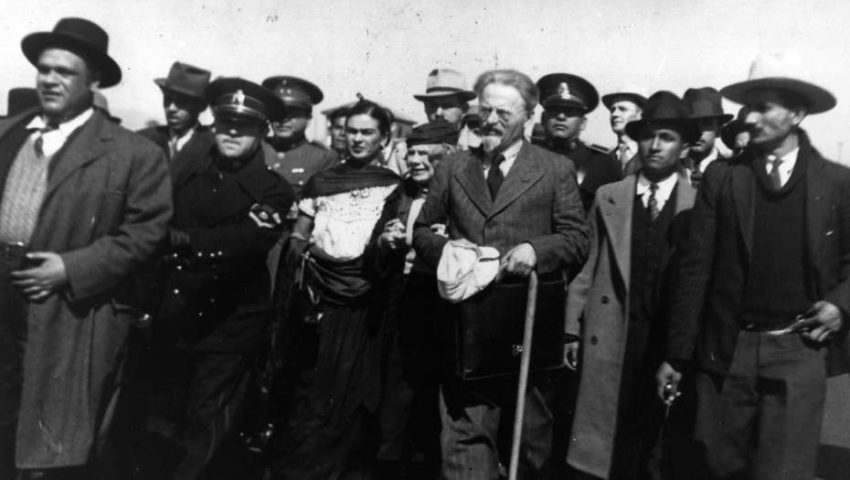
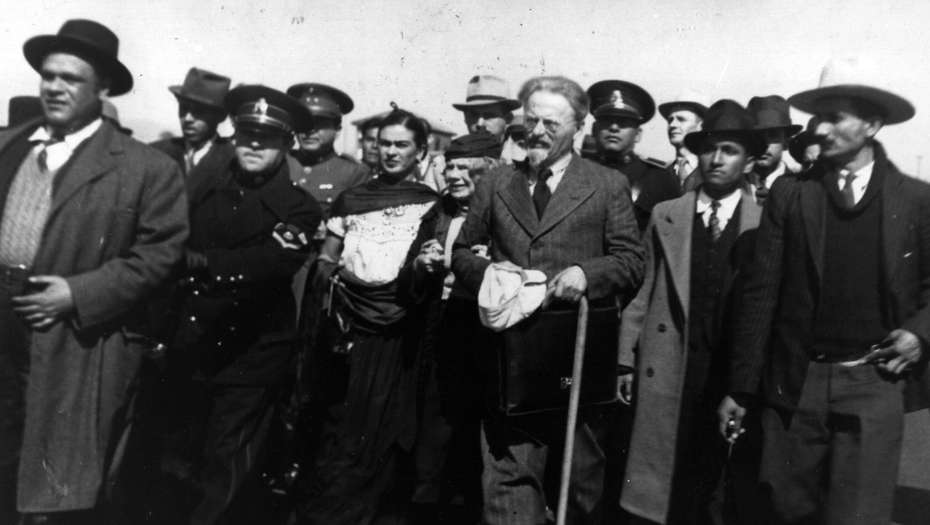
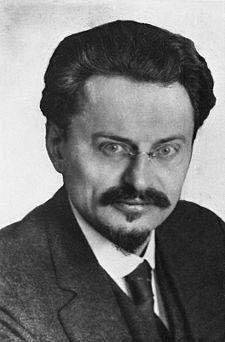

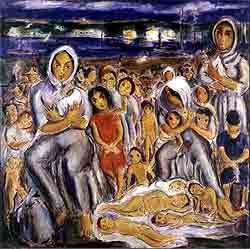

 On the ground floor of the elegant art nouveau Hotel Raquel, at 103 Amargura Street in Old Havana, there is a reproduction of an original oil painting signed by the great Cuban master Victor Manuel Garcia Valdés (1877-1969).
On the ground floor of the elegant art nouveau Hotel Raquel, at 103 Amargura Street in Old Havana, there is a reproduction of an original oil painting signed by the great Cuban master Victor Manuel Garcia Valdés (1877-1969).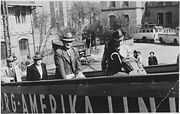 On May 13, 1939, the Saint Louis, a German liner normally assigned to the Hamburg-Amerika line, embarked for Havana with 937 German Jewish passengers. Some came directly from the concentration camps, notably Dachau and Buchenwald.
On May 13, 1939, the Saint Louis, a German liner normally assigned to the Hamburg-Amerika line, embarked for Havana with 937 German Jewish passengers. Some came directly from the concentration camps, notably Dachau and Buchenwald. This was, in fact, a propaganda operation organized by the Nazi regime. Its aim was to demonstrate that the Jews were free to emigrate, while knowing full well that most of the host countries would deny them entry. These travellers of a special type “had to buy return tickets at a prohibitive price, even though they were not supposed to return, as well as pay for the authorization to leave Germany …” (Louis-Philippe Dalember).
This was, in fact, a propaganda operation organized by the Nazi regime. Its aim was to demonstrate that the Jews were free to emigrate, while knowing full well that most of the host countries would deny them entry. These travellers of a special type “had to buy return tickets at a prohibitive price, even though they were not supposed to return, as well as pay for the authorization to leave Germany …” (Louis-Philippe Dalember).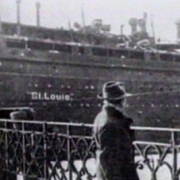 On the ship, a certain tension reigned, because in everyone’s mind it was a journey without return, still the atmosphere was quite easy-going. In the 1930s, advertising images of the Hamburg-Amerika Line shipping company presented a luxurious vision of cruises aboard its liners.
On the ship, a certain tension reigned, because in everyone’s mind it was a journey without return, still the atmosphere was quite easy-going. In the 1930s, advertising images of the Hamburg-Amerika Line shipping company presented a luxurious vision of cruises aboard its liners. In 1994, Maziar Bahari (3) directed Le Voyage du Saint-Louis (52 min.) for French television. The documentary includes testimonies from the rare survivors, those who tried to help them and members of the German crew.
In 1994, Maziar Bahari (3) directed Le Voyage du Saint-Louis (52 min.) for French television. The documentary includes testimonies from the rare survivors, those who tried to help them and members of the German crew.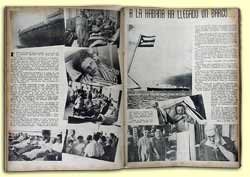
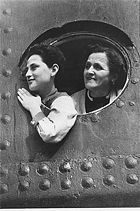 For ten days, the difficulties were such that the Saint Louis –whose presence in the port had become “a real disturbance to public order”– was ordered on June 2 to leave Cuban territorial waters. Of the 937 passengers, only some 25, the only ones with proper visas upon leaving Hamburg, were allowed to land.
For ten days, the difficulties were such that the Saint Louis –whose presence in the port had become “a real disturbance to public order”– was ordered on June 2 to leave Cuban territorial waters. Of the 937 passengers, only some 25, the only ones with proper visas upon leaving Hamburg, were allowed to land.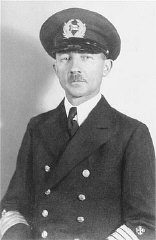
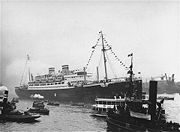 What happened in Havana between May 27 and June 2? Why were more than 900 German Jewish refugees turned away? Above all, it was because the government of Laredo Bru always obsequiously obeyed Washington’s directives. Internal events also had an obvious affect:
What happened in Havana between May 27 and June 2? Why were more than 900 German Jewish refugees turned away? Above all, it was because the government of Laredo Bru always obsequiously obeyed Washington’s directives. Internal events also had an obvious affect: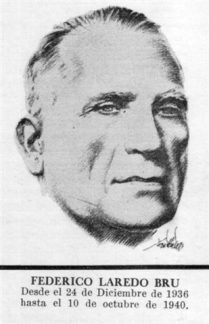 The first anti-Semitic public demonstrations appeared in the last months of the dictatorship of Gerardo Machado, whose colleague, German dictator Hitler, had been in power since January 30, 1933. In Germany, as early as July 1932, the Nazi party had won a majority in the Reichstag. Hermann Goering became president. Hitler’s Mein Kampf had been published in 1925. Joseph Goebbels’ propaganda ministry was fully operational from its inception in March of 1933. The first anti-Jewish measures date from July 1933, but anti-Jewish propaganda had begun even earlier.
The first anti-Semitic public demonstrations appeared in the last months of the dictatorship of Gerardo Machado, whose colleague, German dictator Hitler, had been in power since January 30, 1933. In Germany, as early as July 1932, the Nazi party had won a majority in the Reichstag. Hermann Goering became president. Hitler’s Mein Kampf had been published in 1925. Joseph Goebbels’ propaganda ministry was fully operational from its inception in March of 1933. The first anti-Jewish measures date from July 1933, but anti-Jewish propaganda had begun even earlier.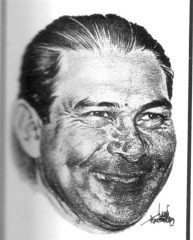
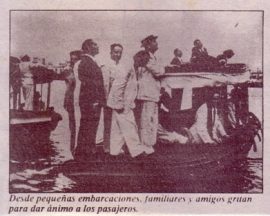 If the mission of the Saint Louis failed, it was partly due to the political context created by the new Decree 937. In other words, internal struggles for power. Those involved included the puppet president Laredo Bru, the Director General of the Immigration Bureau, Manuel Benitez Gonzalez; the man of the “landing permits”; and of course, the “strong man of power”, the head of the army, former sergeant Fulgencio Batista; as well as Lawrence Berenson, New York lawyer for JOINT (the Jewish Joint Distribution Committee) in the USA and Batista’s business lawyer.
If the mission of the Saint Louis failed, it was partly due to the political context created by the new Decree 937. In other words, internal struggles for power. Those involved included the puppet president Laredo Bru, the Director General of the Immigration Bureau, Manuel Benitez Gonzalez; the man of the “landing permits”; and of course, the “strong man of power”, the head of the army, former sergeant Fulgencio Batista; as well as Lawrence Berenson, New York lawyer for JOINT (the Jewish Joint Distribution Committee) in the USA and Batista’s business lawyer.
 (2) – The film, directed by Stuart Rosenberg (1928), while recounting the story, unfortunately makes use of some of Hollywood’s most melodramatic clichés. The commercialization of the film and the parade of stars playing sketchily drawn characters, discredited it. However, few films have had such a brilliant cast: Faye Dunaway, Max von Sydow, Oskar Werner, Malcolm McDowell, Orson Welles, James Mason, Lee Grant, Ben Gazzara, Katharine Ross, Luther Adler, Paul Koslo, Michael Constantine, Nehemiah Persoff, Jose Ferrer, Fernando Rey, Maria Schell, Helmut Griem, Julie Harris, Sam Wanamaker, Denholm Elliott. Although the film was a British production, it proves that Hollywood is capable of anything. Lee Grant was nominated as best supporting actress for an Oscar in 1977. The film was also rewarded with numerous other nominations.
(2) – The film, directed by Stuart Rosenberg (1928), while recounting the story, unfortunately makes use of some of Hollywood’s most melodramatic clichés. The commercialization of the film and the parade of stars playing sketchily drawn characters, discredited it. However, few films have had such a brilliant cast: Faye Dunaway, Max von Sydow, Oskar Werner, Malcolm McDowell, Orson Welles, James Mason, Lee Grant, Ben Gazzara, Katharine Ross, Luther Adler, Paul Koslo, Michael Constantine, Nehemiah Persoff, Jose Ferrer, Fernando Rey, Maria Schell, Helmut Griem, Julie Harris, Sam Wanamaker, Denholm Elliott. Although the film was a British production, it proves that Hollywood is capable of anything. Lee Grant was nominated as best supporting actress for an Oscar in 1977. The film was also rewarded with numerous other nominations. 3) – Captain Schröder, who is credited as a co-writer was most probably the only person to have contributed material, in his case his logbook, to the script. In terms of casting, we find Manuel Benitez Jr (In Miami) Manuel Benítez, Laredo Bru and passengers, Philip Freund, Karl Glesman, Don Haig, CD Howe, Herbert Karliner, William Lyon Mackenzie King, Sol Messinger, Harry Rosenbach. Marx, Liesl Loeb, Jane Ripotot, Susan Schleger, Muriel Edelstein, Susan Shanks.
3) – Captain Schröder, who is credited as a co-writer was most probably the only person to have contributed material, in his case his logbook, to the script. In terms of casting, we find Manuel Benitez Jr (In Miami) Manuel Benítez, Laredo Bru and passengers, Philip Freund, Karl Glesman, Don Haig, CD Howe, Herbert Karliner, William Lyon Mackenzie King, Sol Messinger, Harry Rosenbach. Marx, Liesl Loeb, Jane Ripotot, Susan Schleger, Muriel Edelstein, Susan Shanks. (5) – In popular usage in Cuba, a Jew was often called a “Polaco” (Pole, Polish). “Just as the Spaniards here are called ‘gallegos’, all Jews, regardless of the country from which they came, were ‘polacos’. Polaco was part of the landscape.” (Ciro Bianchi, 2008).
(5) – In popular usage in Cuba, a Jew was often called a “Polaco” (Pole, Polish). “Just as the Spaniards here are called ‘gallegos’, all Jews, regardless of the country from which they came, were ‘polacos’. Polaco was part of the landscape.” (Ciro Bianchi, 2008). 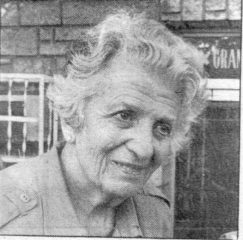
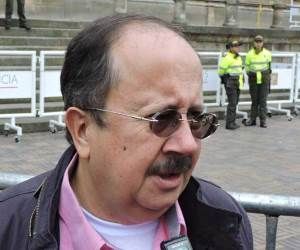


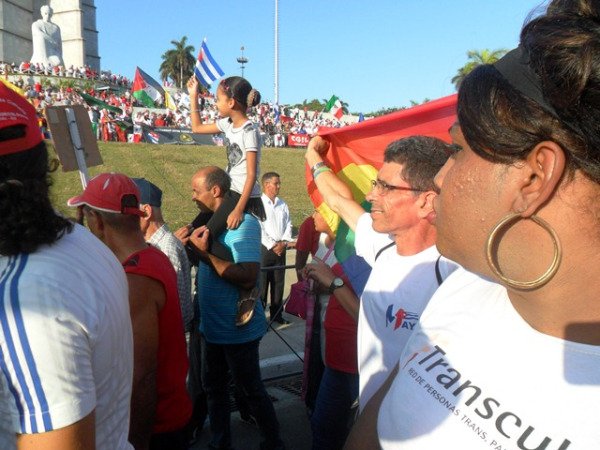






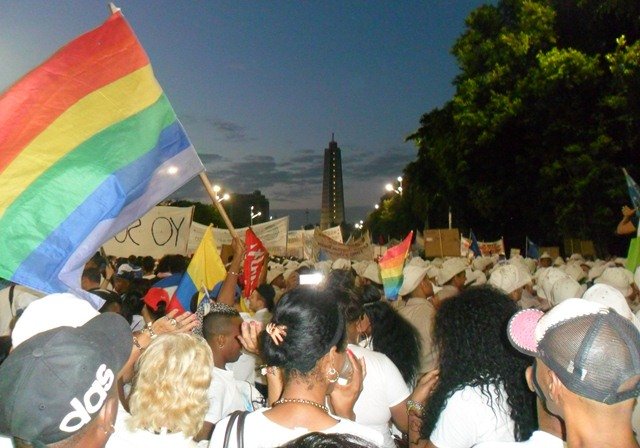



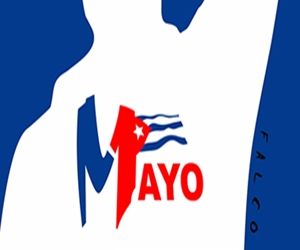


You must be logged in to post a comment.